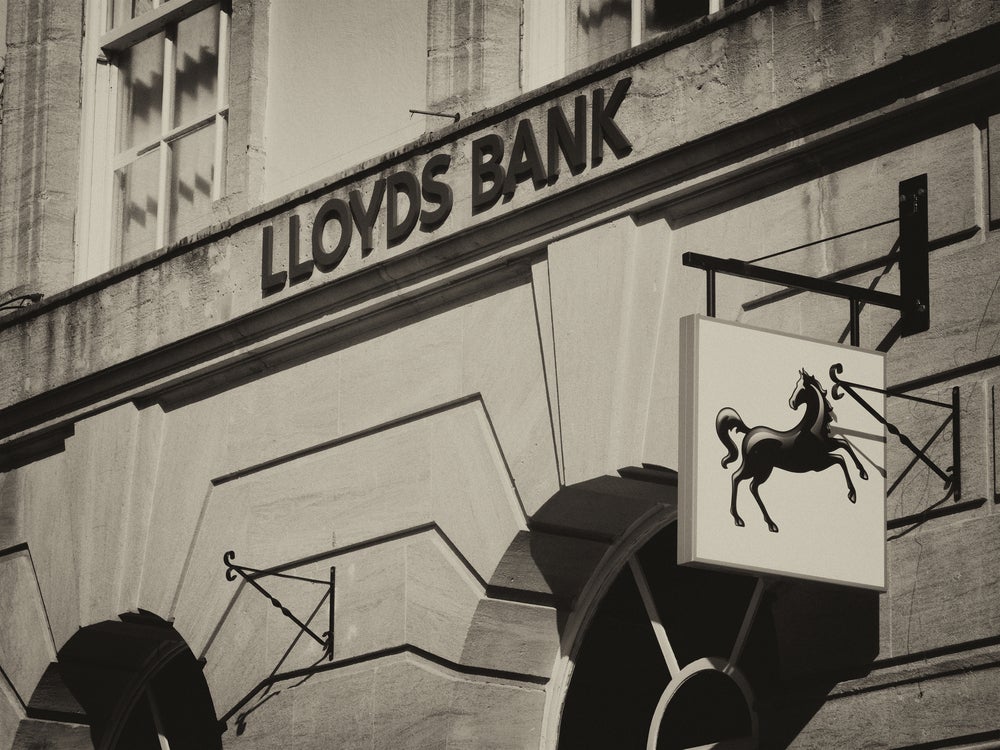
Asset finance banks HSBC and Lloyds, alongside other UK high-street banks, have been put in a “red” warning category based on Which? analysis of their fossil fuel investments and green policies.
The consumer champion examined the environmental policies of 13 of the UK’s leading current account providers with only three earning the Which? Eco Provider badge.
Of the 1,463 Which? members that were asked in January, seven in 10 (69%) picked opening an account with a sustainable bank as the least important way to tackle climate change, from a list of options that also included flying less and recycling. However, the 60 largest banks reportedly ploughed $669bn into the fossil fuel industry in 2022 alone – and many UK high-street banks are among the worst culprits.
Banks can finance fossil fuels in a variety of ways: through project finance (lending to fossil fuel companies for specific projects), general corporate lending and capital markets activity such as underwriting.
‘Red’ category
Six banks are classified in the “red” category, JPMorgan Chase, Santander, Barclays, HSBC, NatWest (includes RBS) and Lloyds (includes Halifax and Bank of Scotland), following Which? and Reclaim Finance (a non-profit research organisation) analysis of their fossil fuel policies – which were broadly found to be too weak – and statements on agricultural commodities such as beef, soy, timber and palm oil.
Of the banks that do finance the fossil fuel industry (rated red), there are differences in financing, policies and promises. Two of them, Lloyds and NatWest, are less involved in these sectors than their peers.
How well do you really know your competitors?
Access the most comprehensive Company Profiles on the market, powered by GlobalData. Save hours of research. Gain competitive edge.

Thank you!
Your download email will arrive shortly
Not ready to buy yet? Download a free sample
We are confident about the unique quality of our Company Profiles. However, we want you to make the most beneficial decision for your business, so we offer a free sample that you can download by submitting the below form
By GlobalDataWhich? researchers also considered transparency levels and whether banks had credible targets to reduce exposure to environmentally damaging sectors, and checked whether they publish independently verified data.
Eco Providers
The three banks labelled Which? Eco Providers are Nationwide, The Co-operative Bank and Triodos. They have no exposure to fossil fuels in their banking activities.
JPMorgan Chase was one of the banks labelled “red”. Since the Paris Agreement, it has financed more fossil fuels than all the banks Which? assessed put together, and got the lowest score for positive environmental impact. It contributed $434.15 billion to fossil fuel financing between 2016 and 2022 and received a total score of just 16 per cent.
However, it says it is targeting $1 trillion for green initiatives by 2030 to help ‘clients accelerate their low carbon transition’, and was ‘the first large US bank to establish 2030 portfolio-level emissions intensity reduction targets.’
Santander does less fossil fuel financing than similar-sized banks, but it has low scores for its stance on fossil fuels and agricultural commodities. It said it has ‘set emission reduction targets for 2030 across a range of material emitting sectors, including steel, aviation, power generation, thermal coal, and energy (oil and gas).’
Barclays is Europe’s biggest fossil fuel financier. However, it is the only bank that Which? looked at to set 2025 targets for power and energy and has provided more than £87 billion of green finance since 2018. It said: ‘Barclays can make the greatest difference by working with customers…as they transition to a low-carbon business model’, noting firms that do not reduce emissions ‘may find it hard to access financing.’
HSBC (including First Direct) is one of the biggest backers of fossil fuels in the UK, although it has updated its energy policies and pledged to stop funding coal expansion. It said: ‘We were one of the first banks to set a net-zero ambition in 2020…We will no longer provide new finance or advisory services for the specific purposes of new oil and gas fields, or for the most carbon-intensive oil assets.’
NatWest (including Royal Bank of Scotland) has taken strides to reduce its exposure and set ambitious targets to reduce emissions, but it still funds fossil fuels. It says it will lend to companies with a ‘climate transition plan’ in line with the Paris Agreement, however, this potentially allows too many loopholes.
Lloyds’ (including Halifax and Bank of Scotland) exposure to fossil fuels is minor compared with peers, and it has higher scores than the other big fossil fuel funders, but it does not yet exclude all financial services for firms with oil/gas expansion plans. It said: ‘We are actively working with oil and gas clients to establish credible transition plans by the end of 2023. We know time is critical.’
Nationwide Building Society, which is one of three banks named a Which? Eco Provider, mainly funds residential mortgages so it does not invest in, or lend to, the fossil fuel industry. It discloses the carbon emissions associated with its mortgage, commercial real estate and registered social landlord lending, and has set science-based targets to reduce all three. It said: ‘We have committed to playing our part in the transition to a net-zero future. This is just one of the ways we demonstrate our mutual difference.’
The Co-operative Bank sets high ethical standards for the businesses it offers services and finance to, most of which are small and medium-sized. It excludes firms involved in the exploration, extraction or production of fossil fuels, and the unsustainable harvest of natural resources. It told Which? it includes parent companies within its ethical review of firms, excluding those with unethical policies both in and out of the UK.
Triodos refuses to lend or invest in fossil fuel projects and focuses its lending on renewable energy. It also excludes companies that mine coal, build coal plants, produce energy from fossil fuel power plants, or extract and produce oil and gas. It said: ‘We also go beyond exclusion and actively look for positive impact…delivering positive change for people and planet.’ Triodos shares a list of its UK and global loans on its website.
Sam Richardson, Deputy Editor of Which? Money, said: “Consumers seeking to make more sustainable choices might want to consider switching banks if they are uncomfortable with their money being invested in the fossil fuel industry and other projects which could be damaging to the environment.
“By choosing one of Which?’s three Eco Providers, customers can feel confident that their bank has impressive green credentials and steers clear of investing money in coal, oil or gas.”







